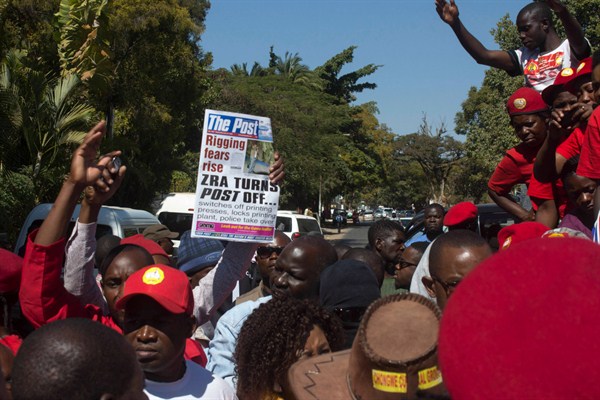Zambia goes to the polls tomorrow, Aug. 11, in an increasingly tense climate marked by protests, violence and the government’s targeted attacks on the opposition. The crackdown launched by President Edgar Lungu is a worrying trend toward further democratic backsliding in the long-stable country.
Lungu was elected in January 2015 following the death of his predecessor, Michael Sata. For many Zambians, Lungu’s admittedly short time in office has left much to be desired, particularly on the the economy. Lungu and his party, the Patriotic Front, are facing mounting criticism from the country’s main opposition movement, the United Party for National Development (UPND), and have cracked down in an attempt to secure a victory in what is likely to be a close race.
Already in 2015, Lungu won with a margin of less than 1 percent, and his time in power has only made him less popular. After last year’s vote, Hakainde Hichilema—Lungu’s opponent then who is again running against him in tomorrow’s ballot—immediately cried foul, accusing Zambia’s electoral commission of fraud. Those allegations have resurfaced this year as Lungu vies for re-election.

